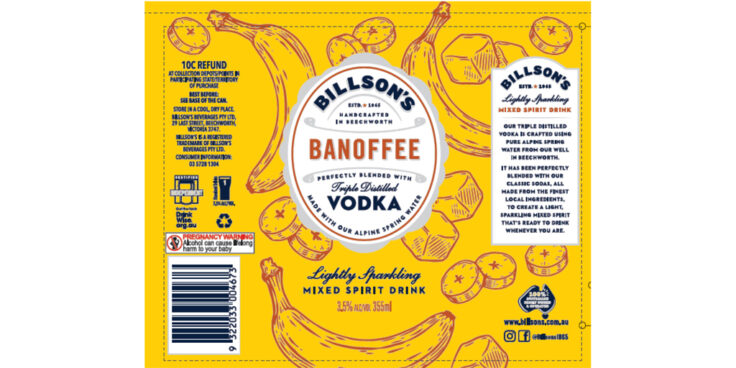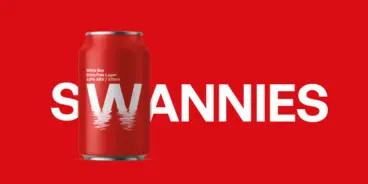
ABAC quarterly report shows increase in complaints
The Alcohol Beverages Advertising Code (ABAC) has seen an increase in complaints and determinations when compared with the same quarter last year, and highlighted the issue of apparent appeal to children.
Its latest quarterly report noted a total of 57 complaints were received, with 39 raising issues covered by the advertising code and referred for determination, with 14 complaints raising issues that fell outside the scope of the code and four raising an issue already considered by the adjudication panel.
Determinations were reached in 23 of the complaints during the quarter with nine upheld by the panel with the remaining 14 dismissed.
ABAC Chair Harry Jenkins said that the increase in determinations this quarter has provided valuable guidance for the alcohol and advertising industry on responsible alcohol marketing.
“Alcohol marketers need to continue to be aware that references to excess consumption of alcohol are not permitted and will not be saved by the use of humour,” he said.
“Likewise suggestions of alcohol causing or contributing to health benefits or sexual success cannot be used.”
He said that several determinations raised the issue of having strong or evident appeal to minors.
“The determinations provide helpful guidance to alcohol companies when developing packaging, and are a reminder to companies to take care when using confectionery and soft drink themes that hold nostalgia for adults to ensure those themes do not continue to hold strong appeal to minors currently,” he said.
“A decision about alcohol brand promotion via a licensed T-shirt, also breached this ABAC standard, using themes that are strongly relatable and appealing to minors.”
Jenkins said independent, pro-active compliance monitoring conducted by JWS Research was a new measure instituted by ABAC for the first time in 2022 and was designed to complement the ABAC Pre-vetting Service.
The report advised that following a comprehensive consultation process and review, the scheme will soon release a revised Responsible Alcohol Marketing Code, as well as report on the review process and publish updated Guidance notes and online training materials.
A live webinar with the Panel Chief Adjudicator will be offered on 13 June at 10am AEST, covering Code changes, recent complaint trends and an opportunity to ask questions before the Code is implemented.
Stakeholders can sign up for the webinar here.
Appeal to children

Referencing the issue of strong or evident appeal to minors, the report noted the complex determination made during the quarter in response to a complaint about the packaging of several Billson’s vodka products.
The company produced a range of flavoured vodka products, including Berry Jelly, Banoffee, Grape Bubblegum and Peaches and Cream. The complainant, a parent, said the flavours, colours and descriptions of cordials are the same as the vodka and soft drinks.
“Flavours such as Fairy Floss, Grape Bubblegum, Rainbow Sherbet, Tropical Punch are drinks that are known to children,” the complaint said.
In a detailed decision that looked at the characteristics that can appeal to children, the panel determined the packaging of six of the products did not breach the Code, while three did.
The three products found to have strong or evident appeal to minors were Tropical Punch, Grape Bubblegum and Rainbow Sherbet.
In the case of the vodkas bearing names similar to confectionary flavours, Grape Bubblegum and Rainbow Sherbet, the panel found both breached the code, noting that while the packaging does use a clear alcohol descriptor of ‘vodka’, it noted that the combination of features that would strongly attract the attention of minors.
The features included multiple bright colours in eye-catching designs, the descriptors ‘bubble gum’ and ‘sherbet’, which are both confectionery items commonly consumed by children and the use of the term ‘rainbow’ which elevates the appeal.
Further, the use of the names ‘bubble gum’ and ‘sherbet’ would likely contribute to an illusion of a smooth transition to an alcohol product for a minor taken as a whole, a reasonable person would conclude that the packaging has strong or evident appeal to minors.
Highlighting the nuances involved in packaging, the panel was able to differentiate between the two soft drink flavoured vodkas, finding Tropical Punch Vodka breached the code while Zesty Lemon Vodka would not have strong appeal to minors.
“To some extent the product names, or variations thereof are used on soft drinks – carbonated sodas, juice or cordials – and hence would be familiar to minors,” the panel noted.
“Further, the cans use outlines of the shapes of fruits, and this enhances the reliability of the packaging to minors.
“On the other hand, the labelling does use the clear alcohol descriptor of vodka and other alcohol cues and would most likely not be confused with a soft drink.
“The Panel does not believe the Zesty Lemon product packaging would have strong appeal to minors. The Tropical Punch however would have strong appeal.”
The decision cited the familiarity of the product name to minors, combined with the bright and contrasting colours employed in the outline of the fruit images.
“Taken as a whole the packaging would go beyond incidental appeal and have strong or evident appeal to minors.”
The panel noted Billson’s cooperation with the process, including its acceptance of the preliminary determination and its commitment to rectify the breaches.
“We’re currently undertaking a full review of our packaging and are committed to working closely with ABAC to ensure everything is compliant. We’ll accept the determination of the panel and work swiftly to rectify any breaches,” the company advised.



